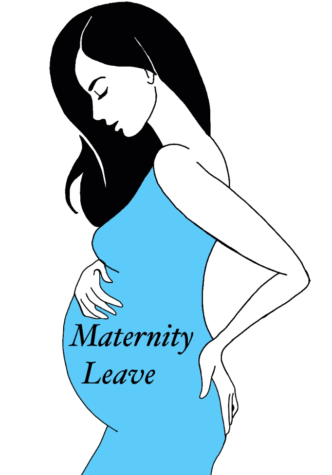OPINION: Louisiana maternity leave supports unpaid labor

Maternity leave has become a luxury for those working in the United States. In most households, taking maternity leave is not possible because it can result in months of unpaid work. Many workplaces do not offer paid leave, and some do not give employees any maternity leave. The Louisiana Family and Medical Leave Act only allows 12 weeks for maternity leave, but only for those who have been employed by the state of Louisiana for at least 12 months.
Consequently, some are forced to work almost immediately after giving birth. Unfortunately, pregnancy discrimination has become commonplace in Louisiana, a southern state that often touts its support for the Supreme Court’s reversal of Roe v. Wade, and has made abortion illegal. In Louisiana, childbearing individuals can no longer choose how many children they will have.
Limited maternity leave for U.S. workers is also a public health concern, as it is physically dangerous to not take any leave after childbirth. Health experts advise that six weeks are absolutely necessary to heal after birth. For a C-section, it can take up to two months to heal.
One in four women in the U.S. return to work after only two weeks of postpartum rest. Due to financial concern and worries about potential impacts on employment, it has become more frequent for some women to take no maternity leave. Some employees may risk their lives if they return to work too quickly, and their employers do not offer paid maternity leave.
Further, C-sections are fairly common and pose greater risks to employees who have just undergone these procedures. Scars from these surgeries can reopen, and the related injuries can be fatal; jobs that require manual labor, like waitressing, increase the risk of C-section wounds opening.
Legislation allowing maternity leave for all women in Louisiana needs to be created because this issue is so widespread. Paid maternity leave may also help cover any additional medical costs related to pregnancy. Legislation should also include temporary disability, a category that covers “disabilities that prevent an individual from working for a short period of time,” and could potentially include pregnancy.
According to the Louisiana Department of Health’s Pregnancy Risk Assessment Monitoring System, the majority of Louisianans did not receive any paid maternity leave. 2012 data suggests that 61% of Louisiana residents were not able to take paid leave, and 7% reported no maternity leave whatsoever. Sixteen percent of women employed during their pregnancy chose not to take leave due to fear of losing their job. Unfortunately, 44% of Louisiana women did not have any paid maternity leave as an option in their work setting.
The lack of comprehensive maternal leave policy leaves significant financial gaps between those who perform reproductive labor and those who do not. Louisiana’s laws and attitudes toward parental responsibility contribute to an unequal distribution of economic resources.
Because cisgender men cannot get pregnant, current maternity leave policy may widen the existing economic gender gap, particularly if women who take leave remain unpaid. Unfortunately, for many in Louisiana, women take on life-threatening risks to return to work in hopes of providing infant children with necessary resources — equitable maternity leave should not be an impossible dream.
Your donation will support the student journalists of Tulane University. Your contribution will allow us to purchase equipment and cover our annual website hosting costs.


